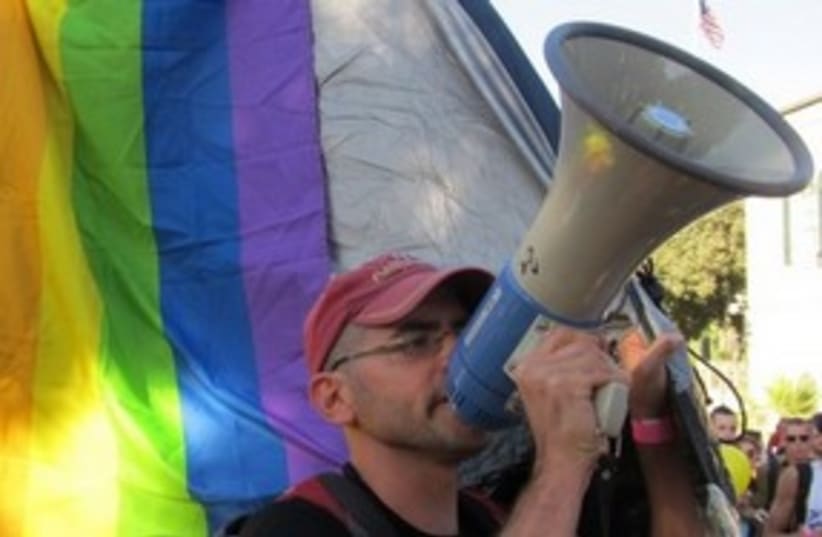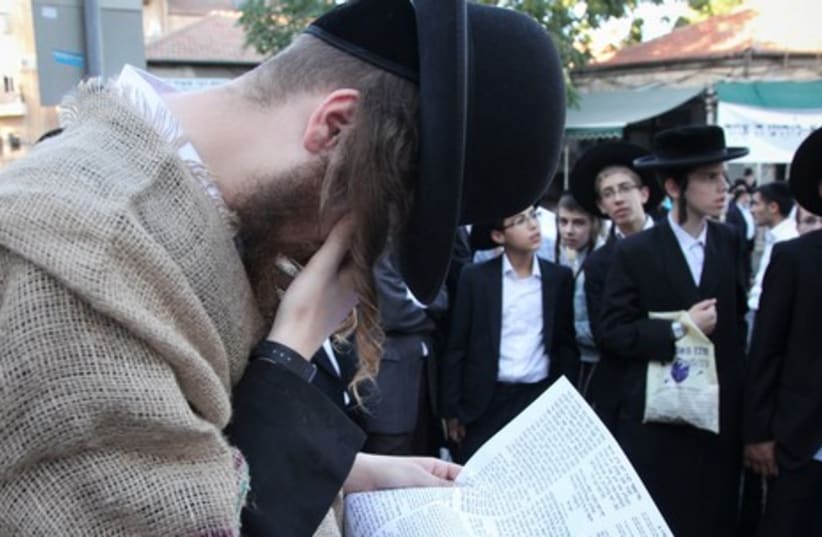
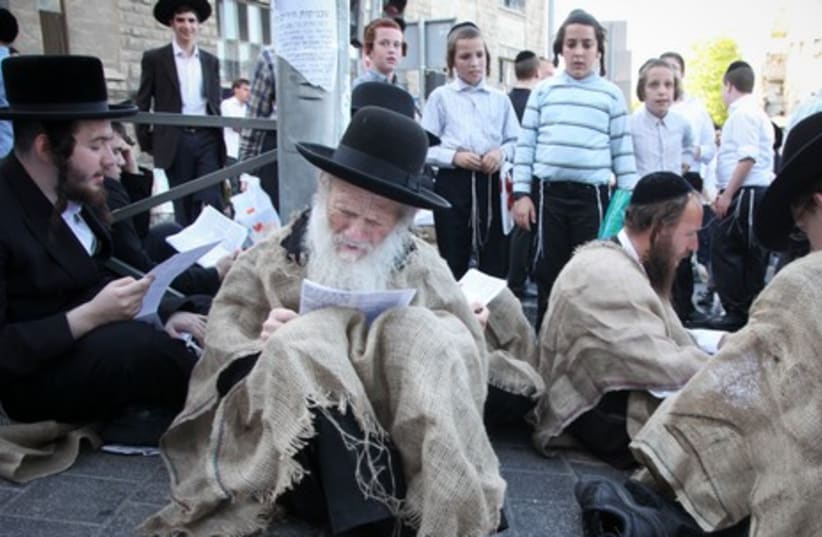
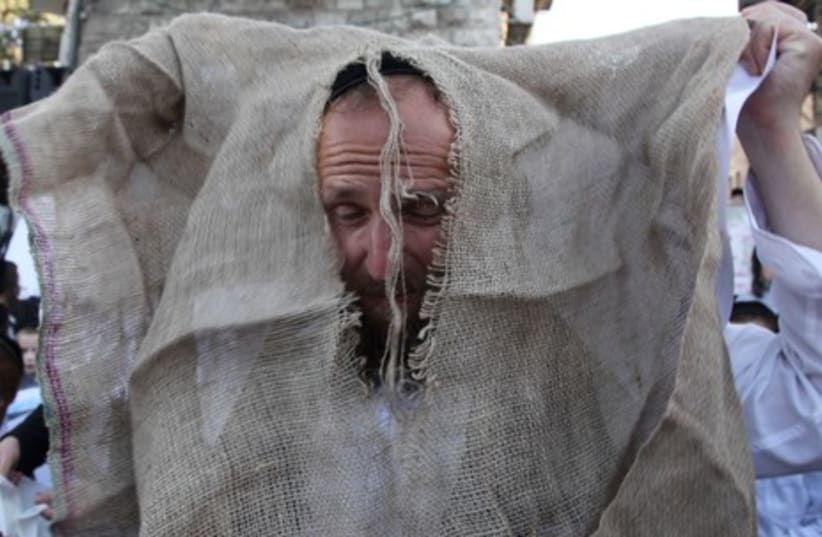
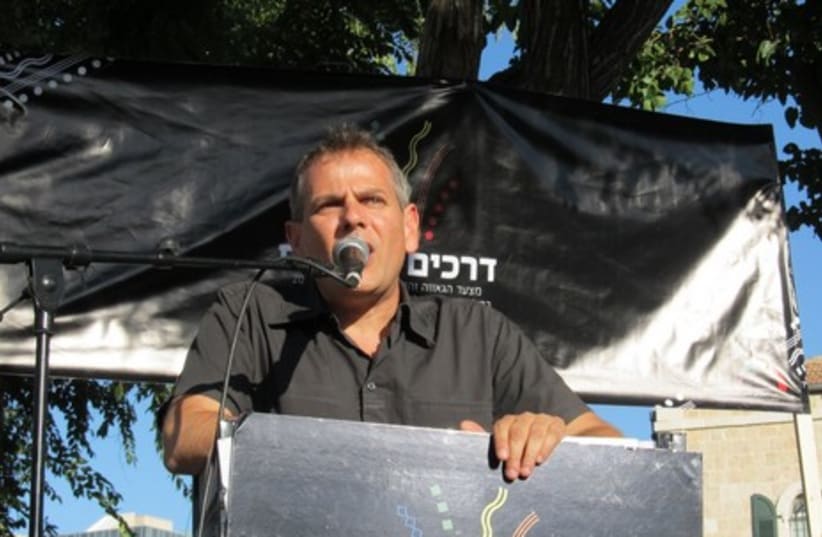
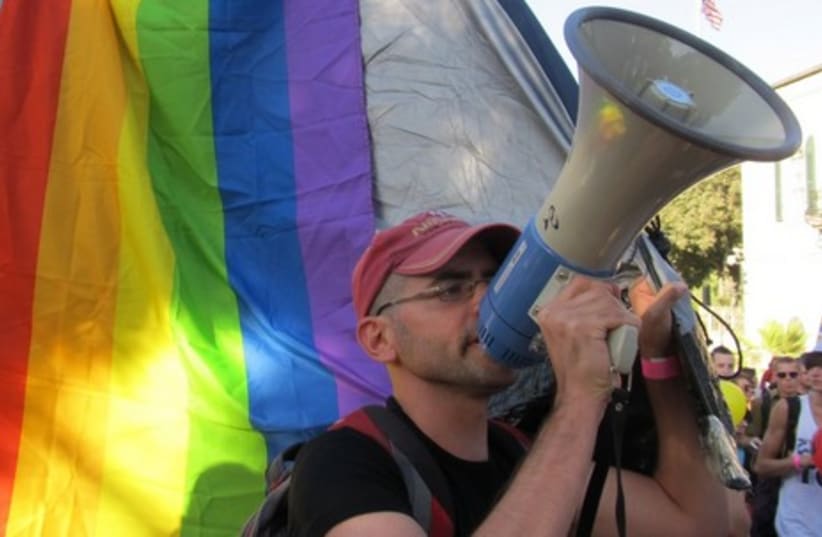
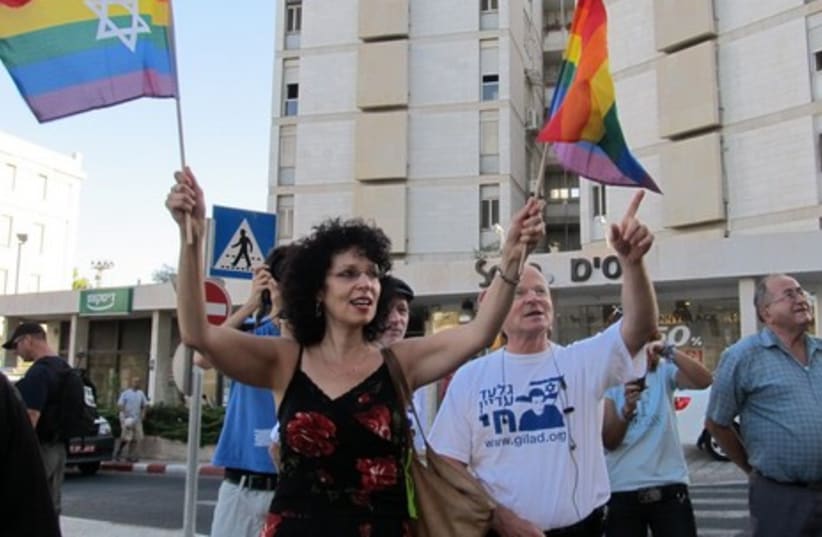

The gay rights activists were joined by other groups who have taken to the streets in the current “season of protests,” including social workers, students, doctors and housing protesters.RELATED:Thousands march in Tel Aviv Gay Pride Parade“This is one day of the year that we can march through the streets exactly as who we are and the way we are, and we’re marching hand in hand with many of Israel’s struggling communities,” said Yonatan Gher, the executive-director of Jerusalem Open House, which organized the march.The theme of the march was “Intertwined Paths,” honoring the way the gay struggle has merged with popular struggles for equal rights, housing, minimum wage and other social issues. The theme was chosen four months ago, but is especially resonant given the current tent protests sweeping across the country.The event, which has been plagued by violence from extremists in the past, went off almost without incident. Next to Kikar Paris near the Prime Minister’s residence, eight people gathered to protest the parade. Police kept them across the intersection and most of the marchers did not notice them. One haredi counter-demonstrator was arrested after throwing bags at the marchers with what seemed to be stink bombs.Gher told The Jerusalem Post that for the past four years, gay rights leaders have been in “discreet negotiations” with the ultra-Orthodox community before the march. Since through the discussions haredi leaders came to the conclusion that anti-parade riots only draw more attention to the issue, demonstrations and violence have noticeably diminished, said Gher.“They realized this has nothing to do with them, and our march is not about sexual identity versus religious identity, but is about our identity as Jerusalemites to march in this city,” Gher added.
MK Nitzan Horowitz (Meretz), the second openly gay Knesset member, addressed the crowds before the march started in Independence Park.“We are marching under a flag of equality for us and a flag of social justice for everyone in Israeli society,” he said. “This parade is a symbol for this city that there are people that want to turn it into Tehran. But we will march under our flag to say that Jerusalem is free and will stay free and equal forever.”Merav Cohen, a Jerusalem city councilor who has been one of the leaders of the tent protest in Jerusalem, announced early on Thursday that the tent protest would join the gay pride march.Dozens of social workers and representatives from the doctor’s strike also took part.“The last few weeks, we’ve really been feeling the social struggle and it really feels like things are changing,” said 24- year-old Meretz activist Chen Ozeri, who has attended every pride march since he was 16.“Every time I get excited again, and am encouraged by all the people here,” he said.“We’re marching to the Knesset for a reason – the government needs to take us seriously because we’re part of the country and they haven’t done anything for our community since it was founded, they need to wake up.”As if it weren’t enough that three separate protests converged on Jerusalem Thursday afternoon – the doctor’s march, the tent protest, and the gay pride parade – police stopped a procession of four donkeys and a few dozen extreme right-wing demonstrators at the entrance to the city. The demonstrators were attempting to get to the route of the annual pride parade with the donkeys, to protest the “bestial” nature of homosexuality.Meanwhile, in a parallel universe a few minutes away, a few hundred haredim – many of them passersby and children – held a protest against the march at Kikar Hashabat, in the heart of the capital’s ultra-Orthodox zone.While the event was called for 4:30, only a handful of people showed up at the intersection, but to Rabbi Ephraim Holtzberg, one of the organizers, “even if ten people show up – at least we will have fulfilled our obligation to protest.” “This is not San Francisco, the capital for homosexuals. This is the Holy City, and the event is a provocation against the entire world, all the religions, and God,” he said.Regarding the fact that so few people had showed up at the initial stage of the protest, Holtzberg said “we are being battled by very powerful people, who tore down all our posters, and put up false ones with the wrong time on them.” He would not say who these parties were.The event, which included impassioned speeches by Holtzberg and Rabbi Arie Shechter, among others, ended with the attendants wearing sacks, sitting on the road and reading the Tikkun Hatzot, a lamentation text focusing on the destruction of the Temples.Previously, the Jerusalem pride march has been held in early June, closer to Tel Aviv’s pride weekend, which drew 70,000 people this year. Open House decided to move the event to coincide with the anniversary of the 2009 attack in Tel Aviv, which claimed the lives of Nir Katz, 24, and Liz Troubashi, 17, when a masked gunman burst into the Bar- Noar Center and started shooting. Fifteen were wounded. The attacker still has not been caught.